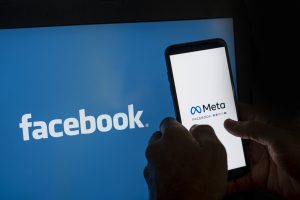Malaysia’s communications regulator will issue a warning to social media firms TikTok and Meta for allegedly blocking pro-Palestinian content on their platforms, the country’s communications minister said yesterday.
In a post on X (formerly Twitter), Communications Minister Fahmi Fadzil said that social media platforms were restricting pro-Palestinian content, and that many parties within Malaysia had urged the government to take firm action to stop it.
“If this issue is ignored, I will not hesitate to take a very firm approach and stance,” Fahmi wrote, Reuters reported. He did not elaborate exactly what punishment would be imposed but said that Malaysians have a right to freedom of speech regarding the Palestinian cause, adding that the right will not be taken away.
The Israel-Hamas war, which began on October 7, with the gruesome attacks on Israeli civilians by the militant group Hamas, has heightened ongoing concerns about how social media platforms like Facebook, YouTube, and TikTok handle their platforms during periods of heightened tension, when the platforms are flooded by disinformation, rumor, and unconfirmed reports, to say nothing of outright propaganda from the various warring parties.
Malaysia has been outspoken in its support for the Palestinians since Israel began air assaults on the Gaza Strip in response to the Hamas attacks. Prime Minister Anwar Ibrahim has described the Israeli response as “the height of barbarism in this world,” and called on Israel to end its tight control over Gaza and occupation of the Palestinian territories in the West Bank.
Fahmi’s warning follows reports that major social media platforms, including Meta and TikTok, have blocked pro-Palestinian accounts. Instagram users have accused Meta’s Instagram platform of censoring and shadow-banning posts that are supportive of Palestine since October 7. According to The Guardian, the social media watchdog group 7amleh has documented more than 238 censorship cases in recent weeks.
Meta has denied that it is deliberately suppressing pro-Palestinian voices on Facebook, though both it and TikTok designate Hamas as a “dangerous organization” and ban content praising the group. Other accounts have been locked “for security reasons after signs of compromise.”
“Our policies are designed to keep people safe on our apps while giving everyone a voice,” a Meta spokesperson Reuters yesterday, stating that reports of politically slanted censorship were “not true.”
Of course, one person’s disinformation is another person’s free speech, as the recent rash of “cancelations” related to the Israel-Hamas war demonstrates, and it is inevitable that tech firms and governments, both of which have a degree of self-interest in the outcome, will disagree on where to draw the line.
Notably, Fahmi Fadzil’s warnings about social media censorship came just two weeks after the minister claimed that TikTok had failed to acquiesce to government requests to remove – that is, to censor – content that his government deemed to be defamatory or misleading. While he did not specify exactly what laws TikTok had failed to uphold, it is likely to have referred to social media posts containing the “3R” issues – namely, race, religion, and royalty – which Anwar’s opponents have used to rally support against the government.
Taken together, Malaysia’s position toward social media reflects the regional trend among Southeast Asian governments, which is to ensure that online discussion falls within cultural and political parameters of its own choosing. In this sense, what they deem hate speech and disinformation, and what is considered fair for public debate, is a simple reflection of their political interests.

































